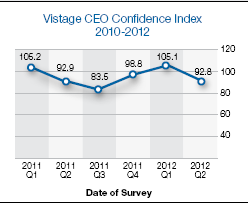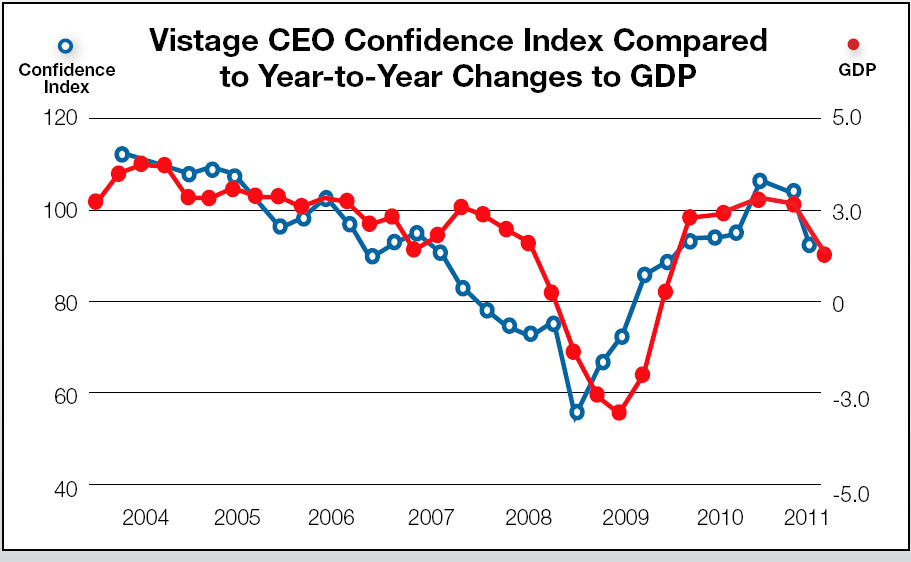 The quarterly Vistage CEO Confidence Index is now available Here are some highlights:
The quarterly Vistage CEO Confidence Index is now available Here are some highlights:
The Confidence Index was 92.8 in the 2nd quarter 2012 survey, down from 105.1 in the 1st quarter of 2012, repeating the same pattern of decline recorded in the first half of 2011 (105.2 in the 1st quarter of 2011 to 92.9 in the 2nd). This is the third year that a mid-year slump in confidence has been recorded. The common elements in each year’s retreat have been weakening conditions in the economy as well as concerns over economic policies. Despite the retreat in confidence, the Confidence Index is much closer to its ten-year peak (115.6) than to its low point (48.7).
Below are some key highlights from the Q2 Vistage CEO Confidence Index:
- 30% of CEOs expect overall economic conditions to improve in the next 12 months,
- 66% of CEOs anticipate sales revenues will increase in the next 12 months.
- 50% of CEOs expect to add to their staff during the next 12 months.
- 26% of CEOs say customer retention and lead generation are the biggest challenges they are facing right now.
- 21% say their biggest challenge is managing costs.
Click here for the full report.

















 The initial results of my Pivot are excellent. I feel I have much greater clarity regarding the next 3-5 years..
The initial results of my Pivot are excellent. I feel I have much greater clarity regarding the next 3-5 years.. 